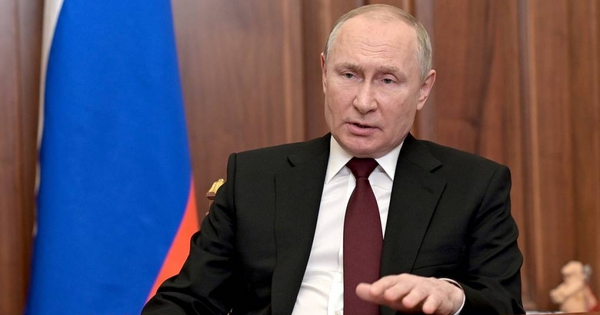Yuan spread from war in Ukraine
ChinaThe yuan is under pressure amid “unprecedented” capital outflows following Russia’s military campaign in Ukraine.
According to a report by the Institute of International Finance (IIF), global investors have been pulling money from Chinese stocks and bonds. “Outflows from China of the size and intensity that we are seeing are unprecedented, especially since we are not seeing similar outflows from other emerging markets,” IIF said.
According to this organization, the timing of the capital outflow was after Russia sent troops to Ukraine. This suggests that foreign investors may be looking at China in a new light, although it is too early to draw firm conclusions on this issue.
According to China Central Depository & Clearing, a government bond depositary, foreign investors’ holdings of Chinese bonds fell by 67 billion yuan ($10.5 billion) in February. “It is likely that capital outflows will be greater in March,” said Macquarie Capital.
During the first 21 days of March, China also saw a net outflow of 59 billion yuan through its Northbound Stock Connect program with Hong Kong. Even so, this is still less than the 70 billion yuan of capital outflow in March 2020, according to the Macquarie report.

Excluding currency exchange in Hong Kong. Photo: AP
Analysts expect capital outflows from yuan-denominated assets to continue to fluctuate in the coming weeks, raising concerns about how the People’s Bank of China will manage its currency, as the US Federal Reserve may continue to raise interest rates to tackle inflation. The move could increase the outflow of money from emerging markets.
China’s State Foreign Exchange Administration said last week it would monitor cross-border capital flows more closely while trying to help companies hedge against foreign exchange risk.
“However, pressure on capital outflows remains high this year, driven by the Fed’s rate hike cycle and hostility. Therefore, we expect the yuan to weaken moderately. When 1 USD converts to 6.5-6.6 yuan by year-end, said Larry Hu, Chief China Economist at Macquarie Capital.
Freya Beamish, head of global macro at London-based research firm TS Lombard, said: “Continually weak growth will lead to a devaluation of the yuan. Creating liquidity, China could end up in a recession-like situation.”
China’s foreign exchange reserves – the world’s largest – fell to $3.214 billion at the end of February, from $3.222 billion, despite the yuan’s high exchange rate against the dollar.
Credit demand was much weaker than expected in February. New loans in China fell to 1.230 billion yuan ($193.2 billion), sharply down from a record 3.980 billion yuan in January, putting pressure on the central bank to ease policy further to support the slowing economy. . Beijing has set a growth target of around 5.5% by 2022.
China’s economy in the first quarter is expected to experience its worst Covid-19 outbreak in more than two years, as new infections have increased in recent weeks.
“As it is already the end of the first quarter, the risk of quarterly GDP growth falling to 4% increases. If that is the case, the full-year growth target, at 5.5%, will also face challenges. Great uncertainty”, Commerzbank assesses.
Currently, US moves to tackle inflation have left China’s central bank undecided about how much to loosen monetary policy – including cutting interest rates – to prop up the economy, dong while trying to avoid putting more pressure on the yuan.

The movement of the yuan – USD exchange rate until March 26. Image: SCMP
The Chinese yuan appreciated slightly to 6.3666 yuan against the dollar on Saturday (March 26), recovering from a 10-day low recorded on March 24. The coin is one of the few regional currencies that tends to end the week stronger than at the start of the week.
UBS predicted last week that China would allow “limited” depreciation of the yuan. “The limited depreciation of the renminbi in all cases is due in part to the fact that UBS global thinks the dollar will weaken from current levels, but also because we believe the Chinese government does not want the currency to depreciate. Significant devaluation and possible tightening of capital controls,” UBS said.
Macquarie Capital believes that the high trade surplus and the large amount of USD accumulated by Chinese banks and companies over the past few years could help cushion external shocks. “Therefore, pressure from capital outflows will not prevent policy easing this year,” the organization said.
An session (according to SCMP)
at Blogtuan.info – Source: vnexpress.net – Read the original article here



